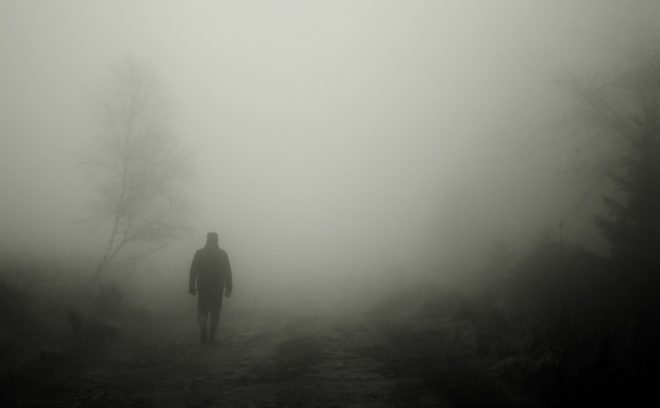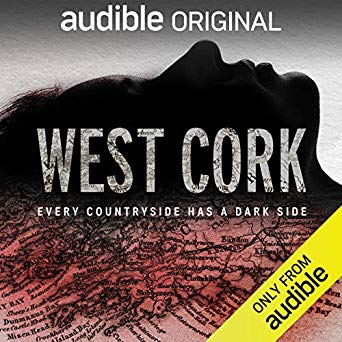The True Impact of True Crime: a West Cork Case Study

On December 23rd 1996, the sleepy West Cork town of Schull suddenly became synonymous with a grisly crime. The murder of French film producer Sophie Toscan du Plantier, who had been staying alone at her vacation property just outside Toormore, was an unprecedented event in the artistic community’s peaceful history. Fingers soon began pointing at Ian Bailey, an Englishman and long-time resident of West Cork. An in-depth police investigation at the time failed to produce sufficient evidence to charge Bailey with the murder, though for many in the community he was labelled indelibly as a dangerous criminal.
Ross, a Schull native who was in his early teens when the murder happened, recalls the effect the crime had on the community’s perception of Bailey. ‘At first, people were openly nasty to him, because most did believe he was behind it. I suppose the community needed someone to blame, we were shocked that this could happen in our small town, and we needed an answer for who did it so we could feel safe again.’
Time went on, however, and no further violent crimes occurred. The community began to settle back into a semblance of normality, and Bailey reintegrated to an extent. ‘Ian is a poet, and he sells his work at our local markets. His partner, Jules, is an artist, and you would often see the pair of them around the place. People leave them alone. They’re not included like they used to be [prior to the murder] in invitations to things, but nobody says anything bad to them. There are whispers amongst the locals of other theories about who might have killed Sophie. I don’t think people are as certain anymore that it was Ian. Anyway, you can’t be actively horrible to someone for twenty plus years; that would be exhausting. You have to move on with your life’, Ross explains.

Although the murder was widely reported on in the Irish news at the time, it happened before the days of social media; and as such the information that those outside the community received about the murder was limited to what news channels and papers chose to share. The West Cork true crime podcast, which was released in 2018, opened the lesser reported details of the case up to a new generation of international crime enthusiasts, eager to develop their own opinions on the mysteries surrounding Toscan du Plantier’s death.
Ross described the strange experience of watching podcast fans engaging with his hometown as though it were an active crime scene years after this traumatic event. ‘There was one Saturday morning that I was at the Skibbereen [town close to Schull] farmer’s market, and I saw a group of people who clearly weren’t from the area pointing at Ian’s stall and getting excited. I made a point of following them around the market for a while, and they were talking in loud voices about whether Ian was guilty or not based on how he looked. I didn’t speak to them directly, but I got the strong impression that they had travelled to West Cork especially to try and hunt down Ian. That to me felt wrong, but I understand that when you’re listening to a [true crime] podcast miles away it feels like a soap opera rather than someone’s actual reality.’
Ross also recounts being approached in a local pub by a tourist approximately a year after the podcast was released. ‘This man had obviously had a bit too much to drink, and he started asking me about a place that was mentioned in the podcast, a place that has some sort of a curse that Sophie supposedly visited before she died. He was laughing while he talked about it, and telling me he was going to visit there the following day and find out if the curse was real. My first thought was that Sophie’s son regularly visits West Cork- what if that man had approached Sophie’s son and asked his question?’
Despite the negative repercussions of West Cork’s popularity, Ross has nothing but praise for the podcast’s creators, Jennifer Forde and Sam Bungey. ‘There was hesitancy at first when they [Forde and Bungey] started coming here to interview people, because you’d worry that they’d create something with an agenda to push a particular theory. There are members of this community that swear blind they know what happened to Sophie and there are all kinds of mad conspiracy theories about the case, and my biggest worry was that they’d be taken in by one of those and convince the world it was true. The fact of the matter is we don’t know what happened in 1996, and the podcast is honest about that.’
However, the community’s experiences since West Cork’s release has changed the way Ross views true crime as a genre. ‘I used to love Serial [famous true crime podcast]. I can’t listen to it anymore because I think true crime turns criminals into celebrities, and desensitises murder to the point that people now go to murder sites for a holiday and get excited about them. I don’t know what the benefits of true crime are except entertainment if we’re being honest about it’.
It is worth noting that Toscan du Plantier’s family endorsed the West Cork podcast as a means of publicising the case. Since the release of the podcast, Ian Bailey has been charged with the murder of Sophie Tosan du Plantier in a French court, and was sentenced in absentia to twenty five years in prison. Bailey will not serve this sentence unless he is extradited by the Irish government. It is unclear about whether the international interest the podcast sparked in this historic case had any influence over this turn of events.
What are your thoughts on the ethics of true crime podcasts? Leave a comment below.
Related reading: West Cork, Audible’s true crime podcast explores Ireland’s longest-standing murder investigation













Comments
Comments are closed.